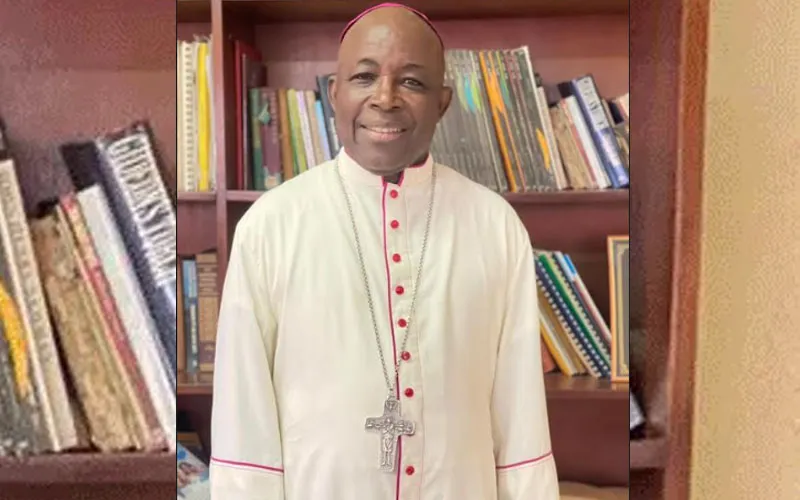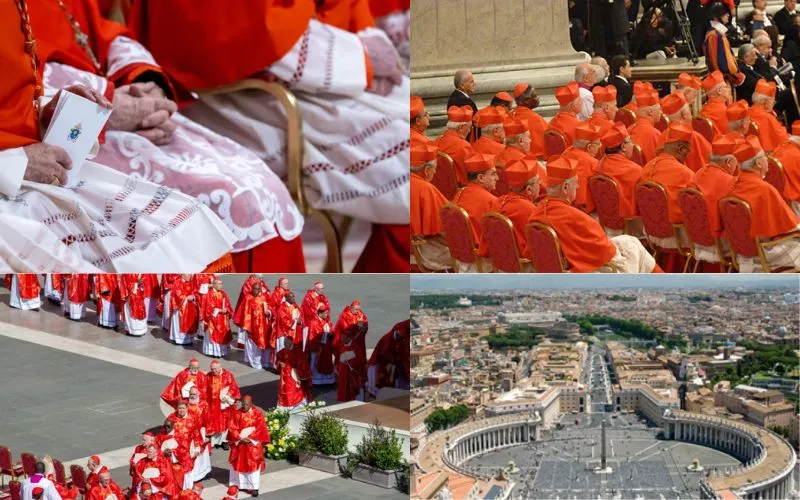Apart from Freetown, the riots took place mainly in the APC strongholds in the North and the North-west: Makeni, Magburaka, Binkolo, Kamakwie, Lunsar, Port Loko, and Lungi.
“The economic hardship is being felt all over the country, but there were no riots in the South and in the Eastern parts of the country,” Archbishop Tamba Charles told ACI Africa during the November 25 interview.
He said that the IRCSL had “roundly” condemned the 10th August violent riots and called for an investigation that would identify its organizers, planners, and financiers.
The Catholic Archbishop recounted that the political situation in Sierra Leone was relatively calm until the final results of the 2018 presidential elections.
Since then, he said, and particularly with the change of power from APC to SLPP, “the political temperature went high and has not gone down.”
(Story continues below)
“The election of the Speaker of the House of Parliament was marred by violence. Some members of the opposition APC lost their parliamentary seats as a result of court petitions, all of which were interpreted as a result of the manipulation of the judiciary by the Executive arm of Government,” the President of Sierra Leone’s inter-religious Council said.
And now, what the IRCSL fears the most is that the June 2023 election may be marred by violence, with politicians being the biggest orchestrators of the violence.
“Our fears are many: that the electioneering campaigns might be marred by violence; that the credibility of the elections might be undermined by the violence that might be orchestrated by some politicians; that the country might be further divided on tribal and ethnic basis, as some politicians are already doing,” he said.
In the interview with ACI Africa, Archbishop Tamba appealed to the Electoral Commission Sierra Leone, the body that is in charge of overseeing the electoral process in the West African country, to do all that is “humanly possible” to ensure that the electoral process is free of corruption.
“Let the electoral process be credible so that the results may be accepted by all,” the IRCSL President said.
He went on to urge the Sierra Leoneans to only vote for leaders who have the development of the country at heart and to resist the temptation to plunge the country into violence.
“Let us vote for the candidates we believe will work in the interest of our country for its people; that is, for the development of our country and the advancement of its people. Let us also allow others to choose their own candidates and to vote for them without fear of being victimized,” Archbishop Tamba said.
“Let us also avoid the use of violence and hate speeches before, during and after the elections. May we accept the results of the elections and allow the candidates that win to govern the country with our fullest cooperation,” he further said, adding, “Sierra Leone is the only country that we can call our home. Therefore, after the elections, the winners and the losers embrace each other and work together for the development of Sierra Leone and its people.”
Agnes Aineah is a Kenyan journalist with a background in digital and newspaper reporting. She holds a Master of Arts in Digital Journalism from the Aga Khan University, Graduate School of Media and Communications and a Bachelor's Degree in Linguistics, Media and Communications from Kenya's Moi University. Agnes currently serves as a journalist for ACI Africa.








